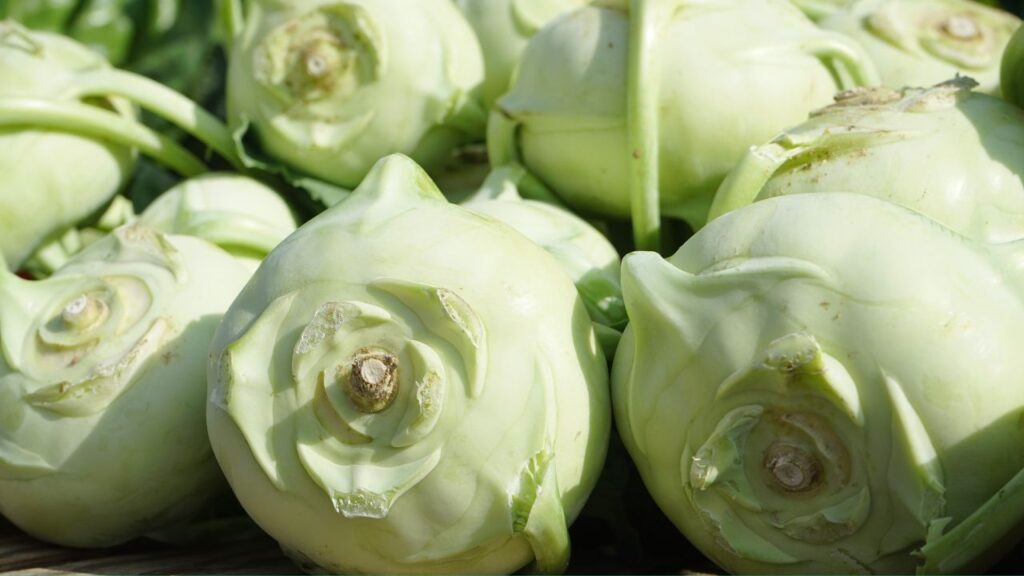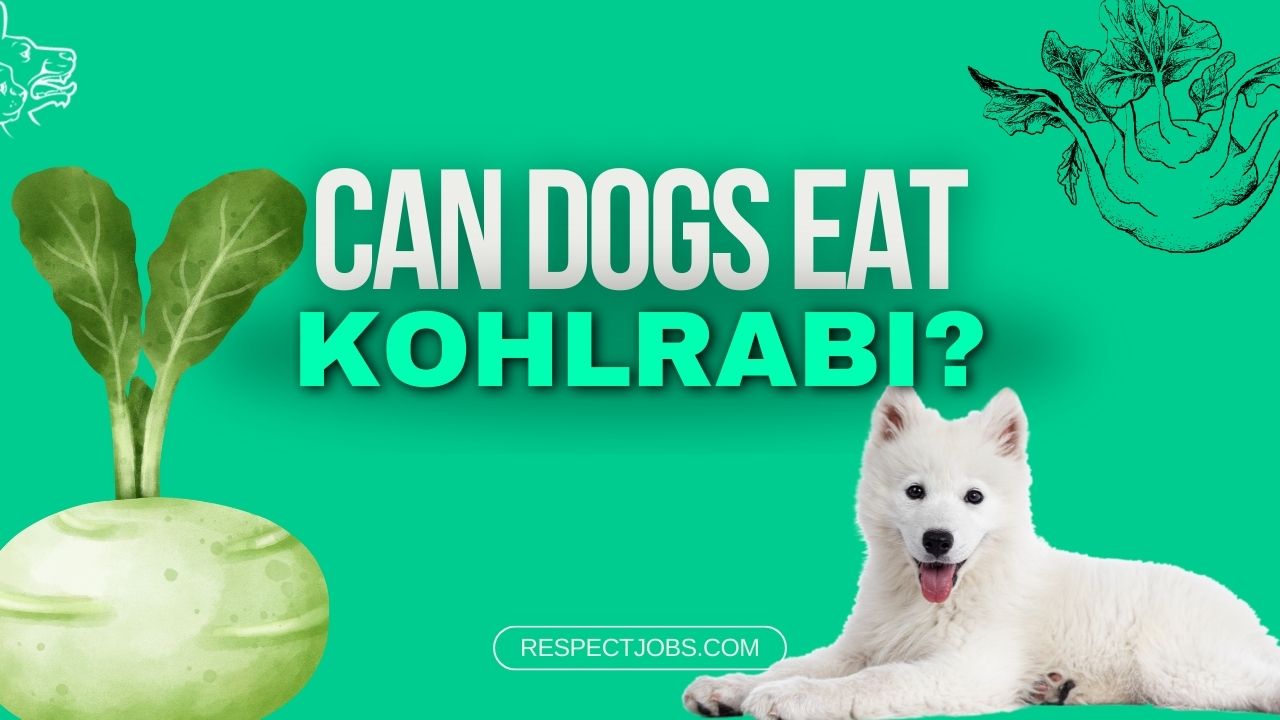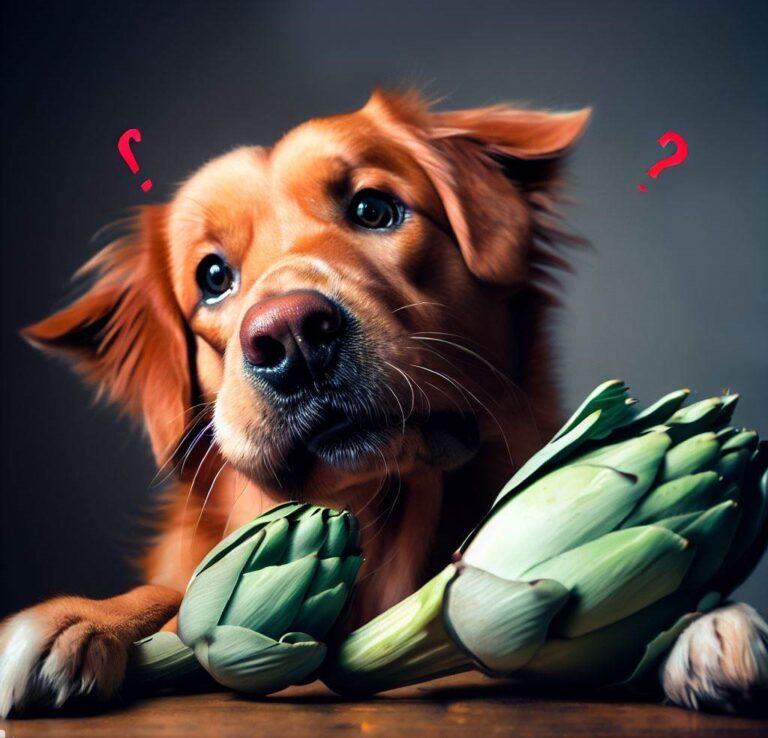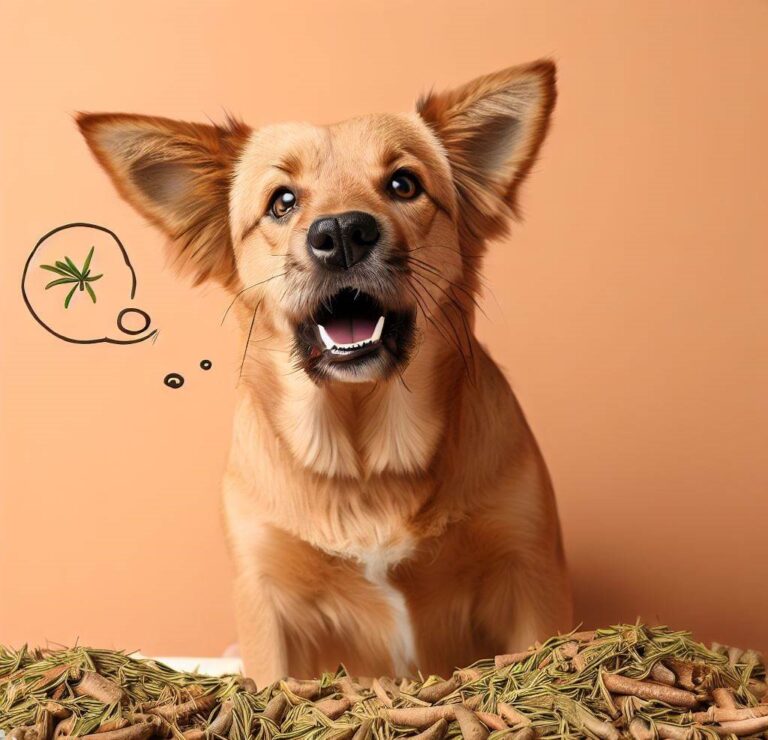Can Dogs Eat Kohlrabi? Exploring the Benefits and Risks
Introduction to Kohlrabi
As pet parents, we always strive to provide our dogs with the best diet possible. But when it comes to introducing new foods like kohlrabi into their meals, questions arise. Can dogs eat kohlrabi? Let’s dive into the world of this unique vegetable, exploring its benefits, risks, and how you can safely incorporate it into your dog’s diet.
Can Dogs Eat Kohlrabi?
Interested in introducing some variety into your furry friend’s diet? Wondering if kohlrabi could be a nutritious addition to their meals? Let’s dive into whether dogs can safely enjoy this unique vegetable.
Kohlrabi, with its crunchy texture and mild flavor, might just pique your pup’s interest. Rich in essential nutrients like vitamins C and B6, fiber, and potassium, it can offer some health benefits for your dog.
However, moderation is key when feeding kohlrabi to your canine companion. As with any new food introduction, start small to gauge how well your dog tolerates it. Some dogs may experience digestive issues if given too much or if they have sensitive stomachs.
Always remember to wash the kohlrabi thoroughly before offering it to your dog. Remove any tough skin or stems that could pose a choking hazard or be difficult for them to digest properly.
Incorporating kohlrabi into your dog’s diet can provide a fun and nutritious twist on their mealtime routine. Just ensure you do so cautiously and monitor how they respond to this veggie treat!
The Nutritional Benefits of Kohlrabi for Dogs
Kohlrabi, a lesser-known vegetable in the Brassica family, offers nutritional benefits for our furry friends as well. Packed with essential vitamins and minerals like vitamin C, B6, and potassium, kohlrabi can contribute to your dog’s overall health and well-being.
The high fiber content in kohlrabi can aid in digestion and promote a healthy gut microbiome for your canine companion. Additionally, the antioxidants found in kohlrabi may help boost your dog’s immune system and protect against cell damage.
This versatile veggie is low in calories but rich in nutrients, making it a great addition to your dog’s diet without adding unnecessary weight. Whether served raw or cooked, kohlrabi can offer a crunchy texture that dogs may enjoy while reaping its nutritional benefits.
Next time you’re preparing a meal for yourself, including this unique vegetable, consider sharing some slices of kohlrabi with your pup to introduce them to its nutritious goodness!

Risks and Precautions for Feeding Kohlrabi to Dogs
When it comes to feeding kohlrabi to your furry friend, there are a few risks and precautions to keep in mind. While kohlrabi is generally safe for dogs to consume, moderation is key.
One potential risk of feeding kohlrabi to dogs is the possibility of digestive issues such as bloating or gas. Introduce this vegetable slowly into your dog’s diet to assess their tolerance level.
Another precaution is to always wash and peel the kohlrabi before offering it to your dog. This helps remove any pesticides or dirt that may be present on the surface.
Additionally, be cautious with how you prepare the kohlrabi – avoid seasoning it with ingredients like garlic or onions, which can be harmful to dogs.
As with any new food introduction, monitor your dog for any adverse reactions after consuming kohlrabi and consult with your veterinarian if you have any concerns about their health.
How to Safely Incorporate Kohlrabi into Your Dog’s Diet
Are you looking to add some variety to your dog’s diet? Kohlrabi can be a nutritious and tasty option to consider. When incorporating kohlrabi into your furry friend’s meals, it’s essential to do so safely and in moderation.
Start by introducing small amounts of cooked or raw kohlrabi to your dog. Monitor their reaction for any signs of digestive issues, such as gas or diarrhea. Remember, every pup is different, so what works well for one may not suit another.
To prevent choking hazards, make sure to chop the kohlrabi into bite-sized pieces before offering it to your dog. Avoid seasoning the vegetable with salt, spices, or oils that could upset their stomach or cause harm.
Consider mixing chopped kohlrabi with your dog’s regular food or using it as a healthy snack alternative during training sessions. Always consult with your veterinarian before making significant changes to your pet’s diet.
Other Safe and Healthy Vegetables for Dogs
When it comes to adding variety to your furry friend’s diet, there are plenty of safe and healthy vegetables that you can incorporate alongside kohlrabi. Carrots are a popular choice among dogs – crunchy, low in calories, and packed with vitamins A and K. Sweet potatoes are another excellent option, rich in fiber and antioxidants while being gentle on the digestive system.
Broccoli is a nutrient powerhouse for your canine companion, providing essential vitamins and minerals like vitamin C and calcium. Green beans are an excellent source of protein, iron, calcium, and vitamins A, C, and K – perfect for supplementing your dog’s diet. Spinach is also a great addition due to its high levels of iron and beneficial nutrients.
Remember to always introduce new vegetables gradually into your dog’s diet to monitor any potential sensitivities or allergies they may have. With so many safe options available, you can get creative with how you nourish your pup!
Conclusion: Is Kohlrabi Safe for Your Furry Friend?
In conclusion, while kohlrabi can offer nutritional benefits to your dog’s diet, it’s essential to exercise caution when introducing this vegetable. Monitoring your pet’s response and consulting with a veterinarian if you have any concerns is crucial. Remember, every dog is unique, so what works for one may not work for another.
If you decide to incorporate kohlrabi into your pet’s meals, do so in moderation and ensure it complements a balanced diet tailored to their specific needs. Ultimately, your furry friend’s health should always be the top priority when making dietary choices.
In summary, dogs can eat kohlrabi, but responsible feeding practices and attentive monitoring are key to ensuring their well-being.







